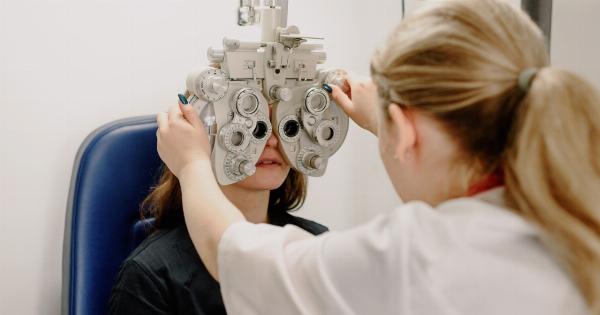As summer approaches, many of us look forward to spending more time outdoors, enjoying the sunshine and warm weather. However, it’s important to be aware of the potential risks to our eyes that summer activities can bring.
From exposure to harmful UV rays to irritants in the environment, understanding these dangers is crucial to maintaining healthy vision. In this article, we’ll explore the various risks that summer macrovia exposes our eyes to and provide insights into protecting them.
1. The Impact of UV Rays on Eye Health
One of the most significant risks during the summer is the increased exposure to ultraviolet (UV) rays.
Prolonged exposure to these rays can cause serious damage to our eyes, leading to conditions such as cataracts, macular degeneration, and even cancer of the eyelids. It’s essential to take appropriate precautions to protect our eyes from these harmful rays, especially during peak sun hours, from 10 am to 4 pm.
2. Choosing the Right Sunglasses
Wearing sunglasses that offer adequate UV protection is an effective way to shield your eyes from the harmful rays of the sun. Look for sunglasses that block 100% of both UVA and UVB rays.
Additionally, consider sunglasses that wrap around the sides of your face to provide optimal coverage. Remember, darker lenses don’t necessarily indicate better UV protection, so always check for the appropriate labeling.
3. The Importance of Wide-Brimmed Hats
To further protect your eyes from the sun, wearing a wide-brimmed hat can be highly beneficial. By providing shade and reducing the amount of direct sunlight reaching your eyes, hats act as a second line of defense against UV radiation.
Choose a hat with a brim that extends at least 3 inches all around to effectively shield your eyes and face.
4. Protective Eyewear for Outdoor Activities
If you actively participate in outdoor sports or engage in activities such as gardening or DIY projects, it’s crucial to wear appropriate protective eyewear.
Regular glasses or sunglasses may not provide adequate coverage or protection from hazards like flying debris, chemicals, or sharp objects. Invest in safety goggles or glasses with side shields to ensure your eyes are fully protected during these activities.
5. Preventing Dryness and Irritation
Summer activities often expose your eyes to harsh environmental conditions, including dry air and increased wind speed. These conditions can cause dry eyes, irritation, and discomfort.
To prevent these issues, consider using lubricating eye drops approved by your eye care professional. Blink frequently to keep your eyes moist and avoid prolonged exposure to air conditioning or fans that can lead to dryness.
6. Swimming Pool and Seawater Risks
While swimming provides a refreshing escape from the heat, it’s important to be aware of the risks associated with the water itself.
Chlorine in swimming pools, as well as the salt in seawater, can irritate your eyes and cause redness, itchiness, or even an eye infection. To reduce these risks, use swim goggles to create a barrier between your eyes and the water. Additionally, make sure to rinse your eyes thoroughly with clean water after swimming.
7. Dealing with Allergies During Summer
Summer is notorious for causing an increase in allergens such as pollen, grass, and mold spores. These allergens can trigger allergic conjunctivitis, commonly known as eye allergies, which lead to redness, itching, and watery eyes.
To minimize your exposure, keep windows closed during high pollen periods, use air conditioning to filter the air, and avoid rubbing your eyes. Artificial tears or antihistamine eye drops may provide relief, but consult with your healthcare professional before using any medication.
8. Recognizing and Treating Eye Sunburn
Eye sunburn, also known as photokeratitis, can occur when your eyes are exposed to excessive UV rays without protection. The symptoms include redness, pain, a gritty sensation, tearing, and sensitivity to light.
If you experience these symptoms, it’s crucial to seek immediate medical attention. Treatment may involve lubricating eye drops, wearing sunglasses, and avoiding further exposure to UV rays until the symptoms subside.
9. Maintaining Optimal Eye Hygiene
Proper eye hygiene is essential throughout summer to reduce the risk of infections and irritation. Avoid touching or rubbing your eyes with unwashed hands, as this can introduce harmful bacteria and viruses.
Always wash your hands thoroughly before inserting or removing contact lenses, and ensure your lenses are properly cleaned and disinfected. Regularly replace your contact lens case to prevent the accumulation of bacteria.
10. Regular Eye Exams
Lastly, don’t overlook the importance of regular eye exams. Routine eye exams with a qualified optometrist or ophthalmologist can help detect any potential issues early on, allowing for prompt treatment.
These exams also enable professionals to assess your eye health and recommend personalized strategies to protect your eyes during summer and beyond.



























